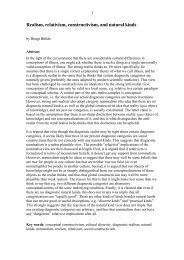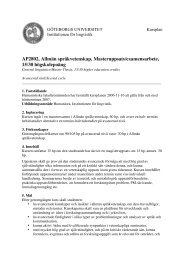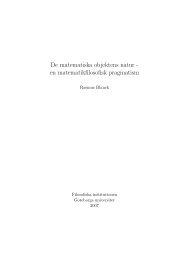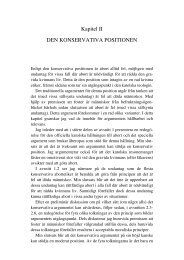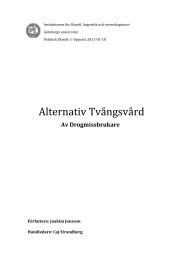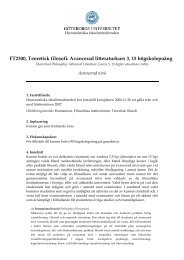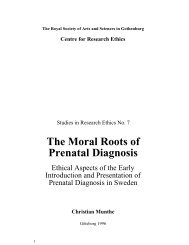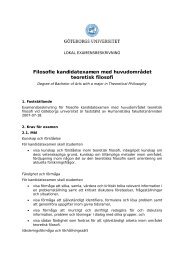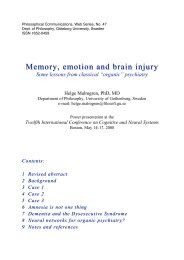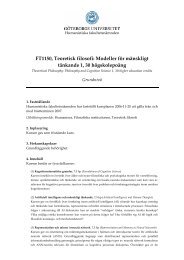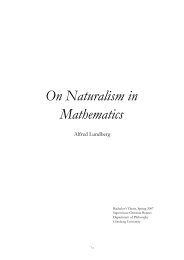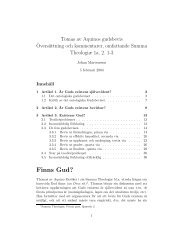Moral Relativism
Moral Relativism
Moral Relativism
- No tags were found...
Create successful ePaper yourself
Turn your PDF publications into a flip-book with our unique Google optimized e-Paper software.
5concept use is governed by public norms, (b) sometimes experts may have a privilegedrole in determining which norms apply, and in those cases not all users, not even allcompetent users, may be aware of all the norms constitutive of a given concept. It issafest, therefore, to think of competence in thought as a matter of degree, where thedegrees are measured on several scales: one can have a greater or smaller range ofconcepts in one’s repertoire, one can have greater or smaller acquaintance with the normsgoverning a given concept and one can be more or less reliable and quicker or slower atapplying the norms with which one is acquainted. 3I said earlier that knowledge of conceptual norms can give rise to a priori knowledge.I am now in a position to elaborate a little on that claim. Let’s look at this from anindividual’s perspective first. One could say that an individual knows or believes aparticular proposition in an a priori manner iff he or she has, in arriving at the belief, onlyexercised his or her general conceptual ability (i.e. the result of acquiring the concepts inquestion) without recourse to experience. On that individual notion of the a priori, somepropositions are only accidentally known in an a priori way. For example, if myacquisition of the concept “red” involves experience of paradigm instances of red, myknowledge that these particular instances (which for me a are paradigmatic) are red is apriori. It will not be a priori for other users who have acquired the concept in a differentway. A more communal notion of the a priori would eliminate variation from individualto individual. One might define it as follows: a proposition is known/believed in an apriori manner just if it follows from the constitutive norms governing the conceptsinvolved.I have been talking about competence with sub-judgemental units: concepts. It isuseful to think of judgements as being conceptually complex, and to view the ability tomake any complete judgement as a complex ability which can be divided into varioussub-judgemental, conceptual abilities. My ability to judge that the paint is dry can beusefully viewed as resulting from my ability to apply the concept of dryness, that ofpaint, and perhaps that of the binary quantifier expressed by “the”. A competent thinkerwill master a number of rules concerning each concept, and will also be subject to anumber of norms. This sort of complexity explains why we can apply our conceptualabilities in new areas. It is also useful in the current context because it allows me todiscuss differences in the kinds of rules concerning different kinds of concepts. For in thenext subsection, I will attempt a classification of various concepts with respect to thekinds of rules governing them.Different ways of calibrating conceptual abilitiesEach properly developed thinker is, as a matter of biological necessity, part of acommunity of thinkers and language users (at least at some time). For he or she mustlearn how to think and how to speak from other thinkers. But the dependence of3 In what follows, when I speak of competent thinkers, this is to be understood either as a vague referenceto a mature thinker (i.e. one who has successfully completed the accelerated learning phase in childhood),or as relative to some particular ability, the context indicating which one. I.e. when I say that a competentthinker teaches an incompetent one some rules concerning the word “river”, then I am speaking, obviously,of comparative competence with respect to those particular rules.



